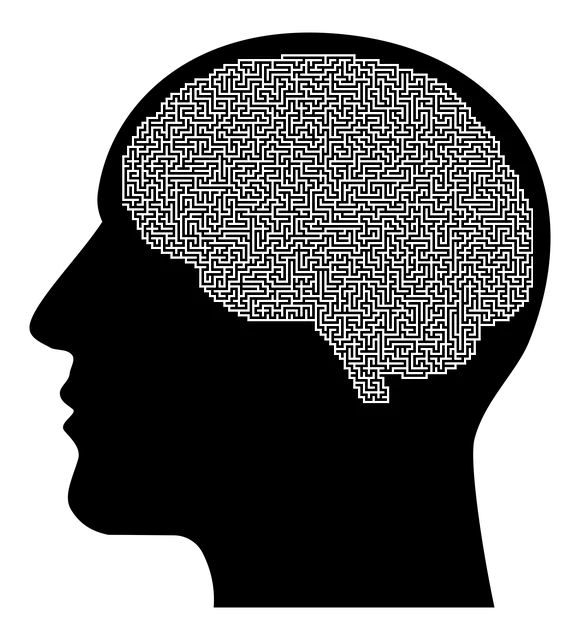The Resilient Factor Method (RFM) is an effective approach to enhancing mental health in Denver, focusing on adaptability and coping strategies. Kaiser in Denver stands out for its excellent therapists who utilize RFM exercises tailored to individual needs, preventing burnout and fostering inner strength. To ensure high-quality care, therapists must have empathy, active listening skills, crisis intervention expertise, and cultural sensitivity. The structured program starts with assessments, followed by tailored exercises in a safe environment, empowering patients with coping mechanisms for long-term mental wellness. Success is measured through RFM framework aspects, allowing therapists to adapt strategies and enhance client support. For those seeking quality therapy in Denver, Kaiser's evidence-based and personalized approach offers hope.
In today’s fast-paced world, building resilience is crucial for navigating life’s challenges. This article explores how Resilience, Flexibility, and Mobilization (RFM) exercises, within Denver’s Kaiser Network, empower individuals to overcome adversity. We delve into the role of therapist expertise in this process, highlighting qualities to seek when choosing a practitioner. Through a step-by-step guide, we illustrate effective implementation strategies. Additionally, we discuss measuring success and fostering continuous improvement, addressing key questions like “Denver does Kaiser have good therapists?”
- Understanding RFM and Its Role in Resilience Building
- The Significance of Therapists' Expertise in Denver's Kaiser Network
- Identifying Good Therapists: Qualities to Look For
- Implementing Resilience-Building Exercises: A Step-by-Step Guide
- Measuring Success and Continuous Improvement
Understanding RFM and Its Role in Resilience Building

Resilience is a vital asset in navigating life’s challenges and stresses, making Resilient Factor Method (RFM) an essential tool for mental health initiatives. RFM focuses on fostering adaptability and bouncing back from adversity, which is crucial in today’s fast-paced world. This method involves exercises designed to enhance individuals’ ability to cope with stress, anxiety, and trauma, ultimately improving their overall well-being. By understanding one’s triggers and developing effective coping strategies, people can build mental fortitude.
In the context of Denver, questions like “Does Kaiser have good therapists?” reflect a growing interest in accessing quality mental health services. Implementing RFM and related resilience-building exercises can be a game-changer for individuals seeking to improve their mental health. These practices encourage self-reflection and empower people to take control of their emotional well-being, which is supported by the concept of Mental Health Policy Analysis and Advocacy. Moreover, regular participation in stress management workshops and positive thinking practices can significantly contribute to an individual’s resilience, making them better equipped to handle life’s curveballs.
The Significance of Therapists' Expertise in Denver's Kaiser Network

In Denver’s Kaiser Network, therapists play a pivotal role in fostering resilience through RFM (Recovery, Functioning, and Maladjustment) exercises. Their expertise is invaluable when it comes to helping individuals navigate mental health challenges. Therapists in this network are not only well-versed in evidence-based practices but also adept at tailoring interventions to meet the unique needs of each client. This personalized approach ensures that exercises aimed at burnout prevention and inner strength development are effective and meaningful.
The presence of competent therapists in Denver’s Kaiser Network underscores the organization’s commitment to Mental Health Policy Analysis and Advocacy. By prioritizing therapist expertise, Kaiser ensures that its services align with current mental health standards, promoting holistic healing and long-term well-being for all individuals served. This focus on quality care contributes to a thriving community where resilience is built and sustained.
Identifying Good Therapists: Qualities to Look For

When considering implementing RFM (Resilience-Focused Mindfulness) and resilience-building exercises in a therapeutic setting, such as at Kaiser in Denver, it’s paramount to first identify good therapists who possess certain qualities. The best therapists are not just skilled in RFM techniques; they also demonstrate empathy, active listening, and the ability to adapt their approach based on each client’s unique needs. A therapist who excels in building rapport and fostering a safe, non-judgmental environment is crucial for effective resilience-building.
Additionally, professionals conducting these exercises should have a solid understanding of crisis intervention guidance and be adept at conducting risk assessments for mental health professionals. This includes recognizing signs of distress, providing timely support, and ensuring client safety. Organizations like the Stress Management Workshops offer valuable resources in this regard, helping therapists navigate the complexities of mental health challenges and deliver high-quality care.
Implementing Resilience-Building Exercises: A Step-by-Step Guide

Implementing Resilience-Building Exercises: A Step-by-Step Guide
At Denver Kaiser, the quest for quality mental healthcare is a priority, and one key aspect is integrating resilience-building exercises (RFM). This systematic approach ensures patients develop strong coping mechanisms to navigate life’s challenges. The process begins with an assessment to understand individual needs, followed by tailoring specific exercises that address those needs. Therapists play a pivotal role in guiding patients through these activities, fostering a safe and culturally sensitive environment. Incorporating RFM can significantly reduce the stigma associated with mental illness while enhancing overall mental health awareness and understanding.
The implementation involves several steps: education, where therapists introduce the concept; collaboration, encouraging patient participation in designing their resilience journey; facilitation, providing support during exercises like mindfulness practices or stress management techniques; and monitoring, regularly reviewing progress to adjust strategies as needed. With Denver Kaiser’s commitment to excellence, these steps ensure patients gain valuable tools for long-term mental wellness. Moreover, addressing cultural sensitivity in mental healthcare practice is integral to this process, creating an inclusive environment that respects diverse backgrounds and beliefs.
Measuring Success and Continuous Improvement

Measuring Success is a critical component of any resilience-building program, especially when considering Denver’s Kaiser network and its therapists’ effectiveness. By implementing structured assessments before and after the exercises, it becomes possible to gauge individual and collective progress. This data offers valuable insights into which aspects of the RFM (Recovery, Functioning, and Motivation) framework are most impactful and where improvements can be made. For instance, tracking changes in mood management skills or trauma support service utilization over time can highlight areas that require further attention.
Continuous Improvement relies on this measured success, allowing therapists to adapt their strategies accordingly. They can identify effective exercises for burnout prevention and tailor them to diverse client needs. This iterative process ensures that the program remains dynamic and responsive, ultimately enhancing its ability to support individuals in their mental health journeys. For those seeking quality therapy in Denver, Kaiser’s offerings could provide a promising path forward with such adaptive and results-driven approaches.
In conclusion, implementing RFM (Resilience Factor Model) and resilience-building exercises in therapeutic settings, as seen within Denver’s Kaiser Network, is a powerful approach to enhancing clients’ coping mechanisms. By recognizing the expertise of therapists and strategically selecting qualified professionals, organizations like Kaiser can effectively support individuals in building resilience. The step-by-step guide provided offers a practical framework for introducing these exercises, while continuous improvement measures ensure optimal client outcomes. Denver’s Kaiser Network serves as a shining example, demonstrating that prioritizing therapist quality and utilizing evidence-based methods significantly contributes to fostering resilience among those seeking support.



